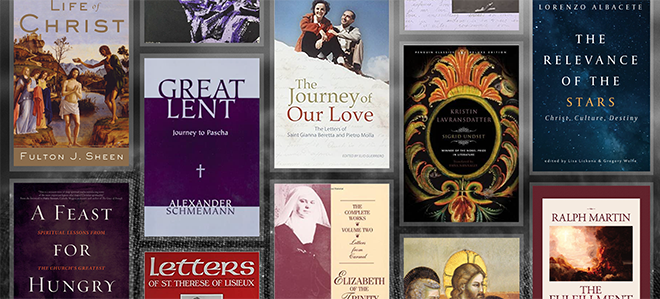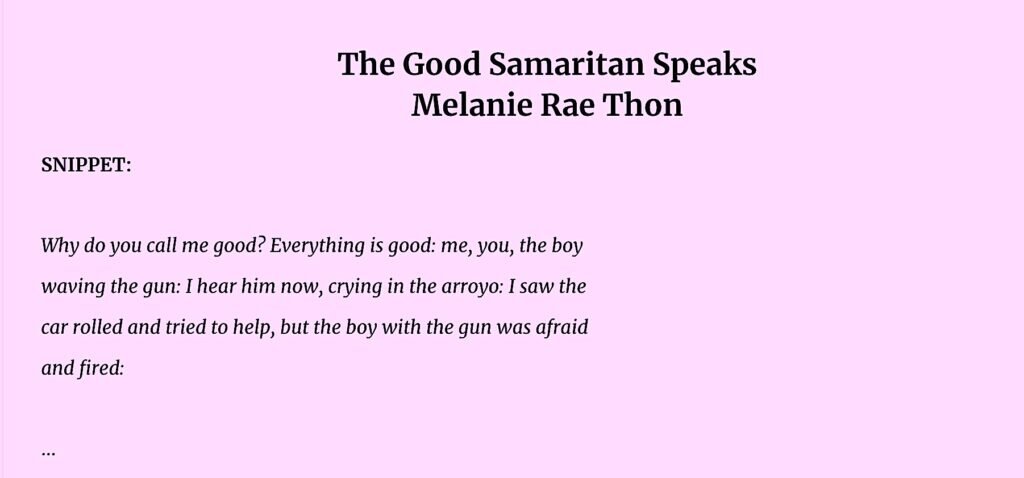Part I: Friday Links, February 19, 2021
Lenten reading recommendations; Archy & Mehitable and free verse; lectionary poetry; Ryan Wilson's "Xenia"; languages alter time.
LENTEN READING SUGGESTIONS FOR 2021 FROM THE WORD ON FIRE INSTITUTE
Katy Carl, Dappled Things Editor-in-Chief recommends this post by Elizabeth Scalia, Editor at Large at the Word on Fire blog.
“‘In Chapter 48 of his Rule, Saint Benedict writes of Lenten reading: “During this time of Lent each [monk or nun] is to receive a book from the library, and is to read the whole of it straight through.
These books are to be distributed at the beginning of Lent.’” The books an abbot or abbess might choose for the benefit of a particular monk or nun were not always religious; sometimes fiction or secular books were given, too.
And that became the case here at the Word on Fire Institute as well, when I asked some friends and Fellows to share what they were planning to read over Lent, or what they might want to highly recommend to others and why. Their answers included all sorts of reads, from spiritual classics to literary fiction."
Lectionary Poetry at Englewood Review of Books
Father Michael Rennier, DT Contributor and Web Editor, recommends this link with the comment, "This is all I've ever wanted.'
“Englewood Review of Books" presents a weekly post of poetry "that resonates with the lectionary readings for that week (Revised Common Lectionary and Narrative Lectionary) according to the three year cycle of Mass readings in the revised liturgical calendar.
"For example, this page links to the poetry for the First Sunday of Lent this year: Lectionary Poetry – 1st Sunday of Lent (Year B)
“We offer here a broad selection of classic and contemporary poems from diverse poets that stir our imaginations with thoughts of how the biblical text speaks to us in the twenty-first century. We hope that these poems will be fruitful not only for preachers who will be preaching these texts on the coming Sunday, but also for church members in the pews, as way to prime our minds for encountering the biblical texts."
Here's a sample below for "Good Samaritan Sunday."
e b white on Don Marquis
A discussion about whether poetry without meter can be called poetry at all started when I posted on my Facebook page a free verse by Billy Collins, former US poet laureate—which artist Mary McCleary first posted. Another Facebook friend brought in a reference to Archy, the creation of a columnist named Don Marquis. Archy was a vers libre poet reincarnated as a cockroach, one suspects for his sin of writing free verse. Ironically (is that the right word?) the reincarnated Archy also wrote mostly in free verse. Archy's best friend was a racy cat named Mehitabel, the reincarnation of Cleopatra.
Also referenced in the FB discussion was E.B. White, another enjoyable writer who wrote about other animals, including a spider you probably remember by name of Charlotte and a pig named Wilbur.
Inspired by this discussion, after I learned about Archy the cockroach poet, I googled a bit and found that E.B. White wrote this marvelous review of The Lives and Times of Archy and Mehitabel by Don Marquis.
“Among books of humor by American authors, there are only a handful that rest solidly on the shelf. This book about Archy and Mehitabel, hammered out at such awful cost by the bug hurling himself at the keys, is one of those books. It is funny, it is wise, it is tender, and it is tough. . . ."
Language Alters Our Experience of Time
Karen Barbre Ullo shared this link to a conversation by Panos Athanasopoulos at "Pocketworthy," with the comment, "This is so neat. Maybe our folks who speak more languages than I do can relate?"
“It turns out, Hollywood got it half right. In the film Arrival, Amy Adams plays linguist Louise Banks who is trying to decipher an alien language. She discovers the way the aliens talk about time gives them the power to see into the future – so as Banks learns their language, she also begins to see through time. As one character in the movie says: 'Learning a foreign language rewires your brain.' . . ."It’s never too late to learn a second language. You will not see into the future, but you’ll definitely see things differently."
Ryan Wilson's "Xenia"
Katy Carl shared this link to Ryan Wilson's "Xenia"at the "Daily Poem." David Kern reads the poem, gives a brilliant analysis of the poem, and then reads it again. He explains it as "a thoughtful poem about ancient concepts and contemporary art-making."
“The Daily Poem offers one essential poem each weekday morning. From Shakespeare and John Donne to Robert Frost and E..E Cummings, The Daily Poem curates a broad and generous audio anthology of the best poetry ever written, read-aloud by David Kern and an assortment of various contributors. Some lite commentary is included and the shorter poems are often read twice, as time permits."






